Imam Khomeini was a leader with roadmap for humanity: Interfaith leader
By Hiba Morad
Ayatollah Ruhollah Khomeini, the founder of the Islamic Revolution, was an "exceptional leader" who played a "major role in history", according to a Lebanese scholar and faith leader.
Sayyed Ali Sayyed Qassem, the head of Lebanon’s Center for Interfaith Dialogue and Cultures and member of the Vatican Commission for Religious Relations with Muslims, in an interview with the Press TV website on Saturday, paid glowing tribute to Imam Khomeini on his 34th anniversary of his passing.
Imam Khomeini, he said, was a “revolutionary leader, a jurist, a theologian, a philosopher, a mystic, a politician”, pointing to his “exceptional multi-dimensional personality that saw humanity as the core of existence”.
One of the main ideas in Imam Khomeini’s thought which serves as a cornerstone to his successful revolution and to the change it brought along was ‘carrying out necessary divine tasks”, Dr. Qassem said, terming it an “essential value that he passed on to generations.”
According to him, Imam Khomeini did not come from a materialistic school, but a spiritual and ethical school that sees human existence beyond the throes of materialism.
“He saw himself as a servant of God; a devoted follower who strives to serve people and has a good impact on the world,” Dr. Qassem told the Press TV website.
A clear vision and strong will
According to Dr. Qassem, Imam Khomeini was a wise religious and political figure who knew how to choose his words, make decisions, and had deep insight on different socio-political matters.
“One example of his wisdom is his letter to Mikhail Gorbachev, the last leader of the Soviet Union, which was an open invitation to break the manacles of man-made ideologies and the so-called liberal school of thought of the West,” he explained.
Ayatollah Khomeini never hesitated to choose the right path even if it was a tough one, the head of the Lebanese interfaith dialogue center remarked.
“Until his last breath, he was determined to carry out his duties and achieve his goals. He was vocal in his support of the oppressed people wherever they were.”
The slogan “Let us save the oppressed”, Dr. Qassem noted, was translated into Imam Khomeini’s actions.
“Imam Khomeini and his revolution based on which the Islamic Republic of Iran was established worked for supporting the oppressed people of the world, which is an important Islamic value in terms of humanity. Iran was not his only concern, he had an international message to deliver,” he stated.
Imam Khomeini, he hastened to add, was the first person in history to practically be able to confront Western colonialization that tried to subjugate countries to exploit their riches and dominate them.
“His thought scared the West because Islam’s values that he adopted are in total contradiction with Western imperialistic values,” Mr. Qassem emphasized.
Political insight and steadfastness
“Neither East nor West” was another popular revolutionary slogan Imam Khomeini introduced, calling for independence from both power blocs of the time.
“He was able to foresee that the West, led by the US, wanted to weaken Muslim countries and make them subservient and weak states that cannot face the West’s hegemony,” Dr. Qassem said.
Imam Khomeini, according to him, was also able to carry out futuristic studies and understand the world in a different way, through which he set up his own school of thought that led to the establishment of a strong Iran in different realms despite sanctions.
After the Islamic Revolution, which created waves across the world, Western elite media launched a smear campaign against Imam Khomeini to discredit the hugely successful Islamic Revolution he spearheaded.
“The US, Britain, and France along with other Western countries spread lies about Islamic thought and tried to depict Islam as a violent and regressive religion. They also attacked Imam Khomeini and tried to convince people that he is a violent theocrat, Dr. Qassem said.
“Imam Khomeini was an unyielding personality, and at the same time, he was generous and kind. Who says that firmness and steadfastness in terms of defending one's beliefs and values is a bad thing?”
Today, 34 years after Imam Khomeini’s passing, there is a united resistance front that stands in the face of Western hegemony and the Israeli apartheid regime’s continued aggression. It is a front that includes resistance groups and movements in Palestine, Lebanon, Yemen, Syria, Iraq and Bahrain.
“For the first time in history, not only is the Israeli army no longer invincible, but there is also a strong sense of rejection of Western imperialism among the people of the region who are aware of the agenda of Western powers to dominate West Asia and colonize the minds of people,” he said.
All this, according to Dr. Qassem, owes to values preached and practiced by Imam Khomeini and his school of thought that defended social justice and opposed aristocracy.
Palestine: Oppressed vs oppressors
The Palestinian cause lies at the heart of the Imam Khomeini School of Thought, he asserted.
“If one correctly reads history, one can see that Imam Khomeini declared the last Friday of every Holy month of Ramadan as International Al-Quds Day. This declaration came only 6 months after the revolution, exactly four months after the Islamic Republic of Iran was established,” he said.
“If this move signals anything, it is his prioritization of the Palestinian cause and its strong presence in his political thought.”
The Palestinian issue and the malicious behavior of the Israeli regime were issues that Imam Khomeini talked about in his speeches. Imam believed that if the Israeli regime has its way, all Muslim countries would eventually end up suffering the same fate as Palestine.
“It is not a coincidence that Imam Khomeini made such a decision in declaring Al-Quds day in Ramadan; a month in which the fasting ritual is observed and interpreted as an event for fostering social cohesion and a time to come together, based on common humanity,” Dr. Qassem said.
“He did not declare Al-Quds day as a day for Muslims but rather an international day of confrontation against the oppressors, not only in Palestine but the entire world.”
Iran’s Army and IRGC destroy seven more Hermes, MQ-9 drones in retaliatory ops
'Iran no place for Hell dwellers': Iran’s security chief warns against ground offensive
Unpacking glaring contradictions in US-Zionist justifications for war against Iran
Lavrov: Russia 'will do everything’ to make US-Israeli aggression against Iran ‘impossible’
Iranian nation resolved to make criminals pay for blood of martyrs: Shiraz Jews
Iran slams US-Israeli attack on Tehran's 12,000-seat Azadi sports complex as war crime
Death toll from US-Israeli aggression against Iran crosses 1,200
Iran won't stop its retaliation until the aggressor is punished: Speaker Ghalibaf


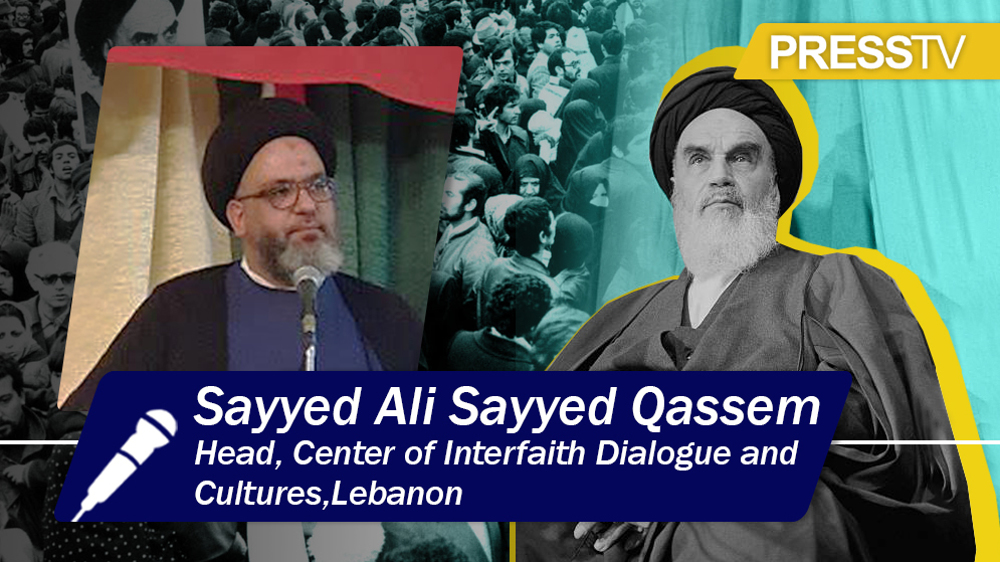

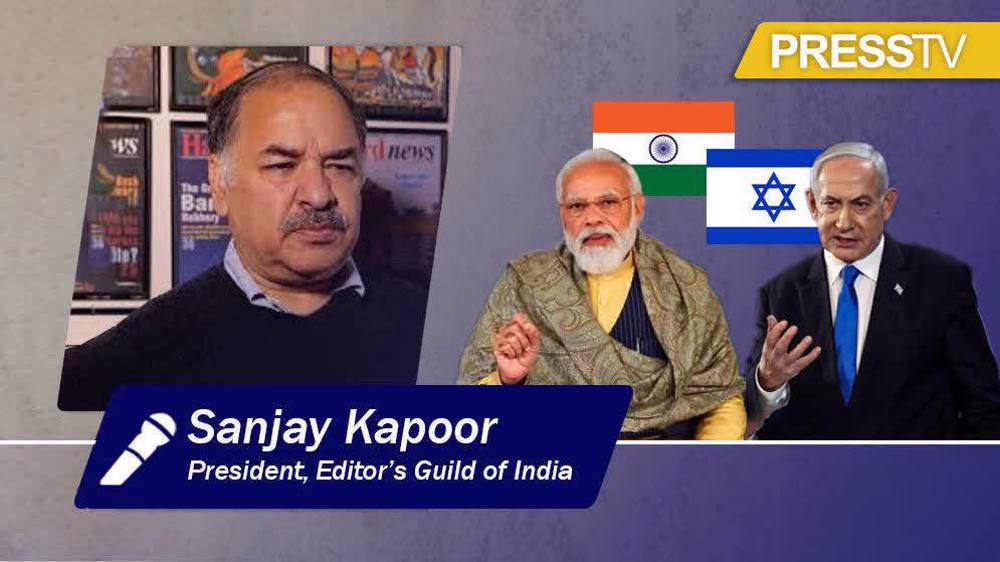
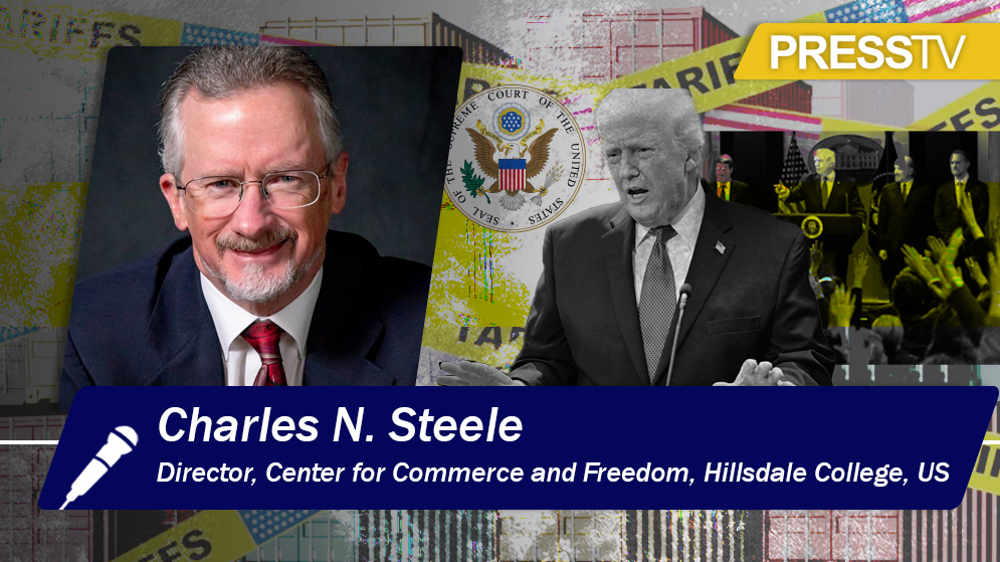



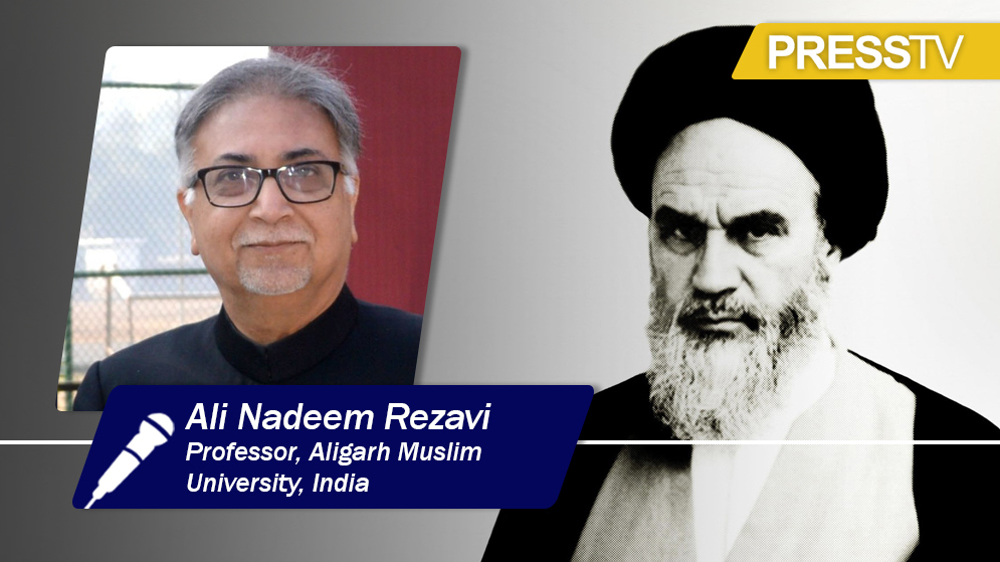
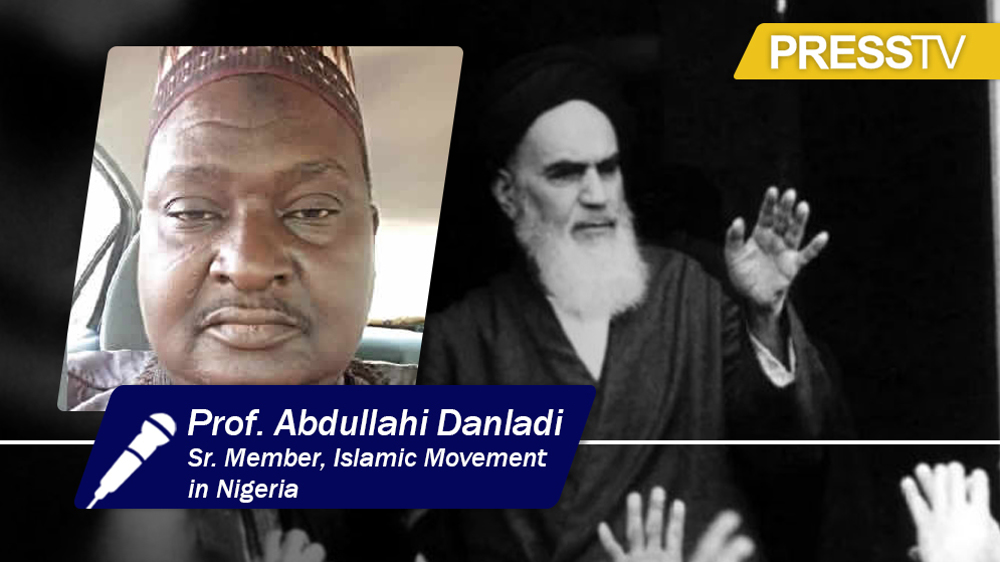
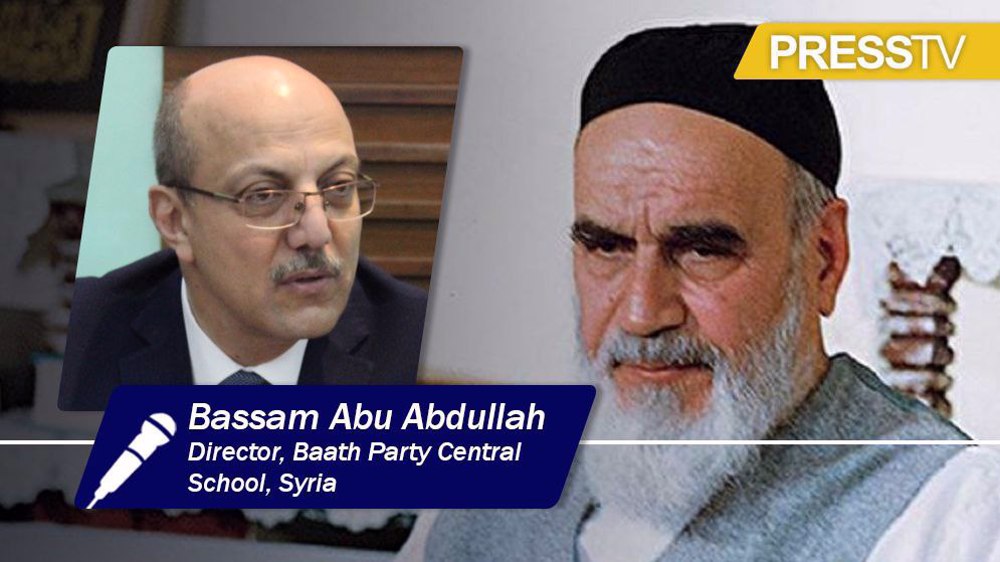
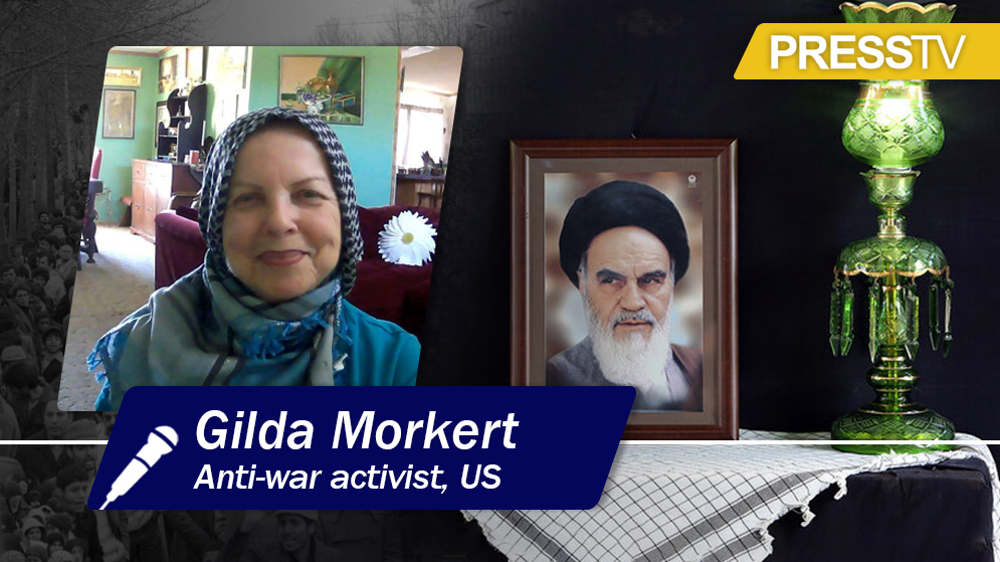
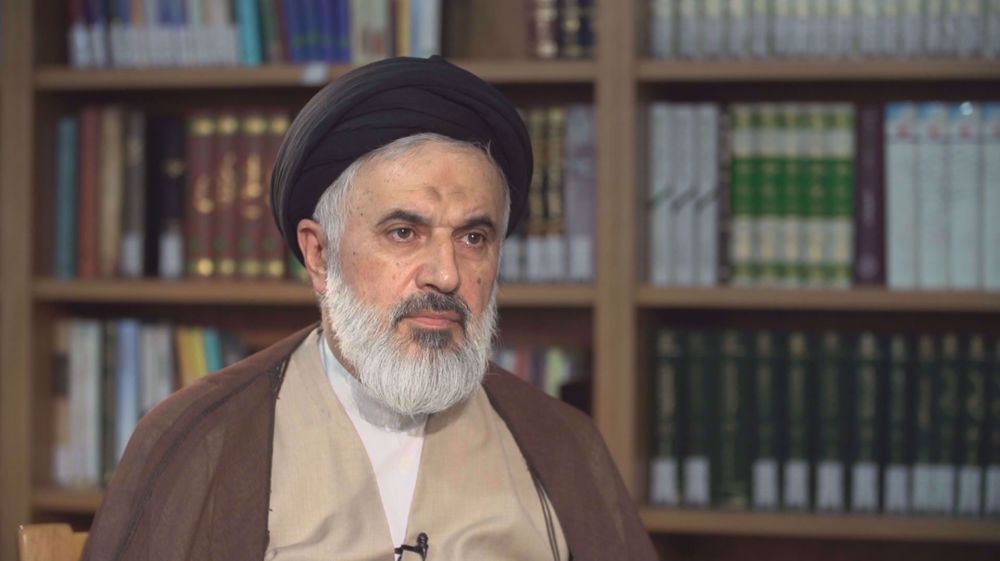

 This makes it easy to access the Press TV website
This makes it easy to access the Press TV website